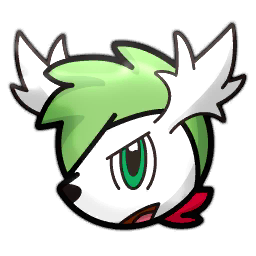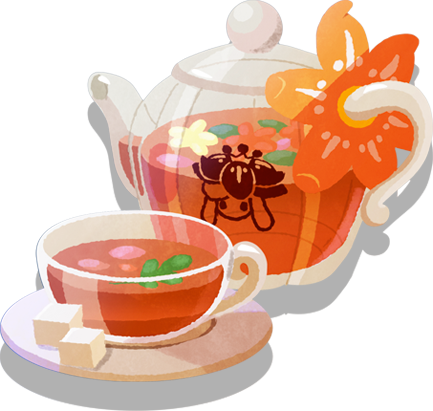The old, cabin-less vehicle is bumping up and down with every stone and hole in the pathway it encounters, while the engine happily adds its own vibrations and noises to the mix
I find this excessive. Off the bat, it sounds super wordy. Perhaps maybe… “The old cabin-less vehicle bumps up and down on every stone and hole in its path. Its engine happily adds vibration and noise as you drive through.” Something like that.
The smell of oil and diesel is sharp and lulling at the same time and there is only one thin handhold separating you from the ground and the fall it takes to get there.
I think you can break up these sentences into two. It’s just too long. Remove the ‘ands.’
The summer hillsides you are crawling through, however, are a different story.
Crawling through? feel like that could be removed since you are describing the setting well enough already. There is no need for a metaphor.
Terraced fields are huddled together, sharp against the clear blue sky and almost bursting from the rice that is now blooming in thousand shades of green and gold.
Another sentence I think could be broken up and too wordy. Maybe like: “Terraced fields are huddled together, sharp against the clear blue sky. It is almost bursting from the blooming rice under a thousand shades of green and gold.”
Like an ocean it gently sways whenever a breeze cools the heat off your skin.
I don’t think the ocean metaphor works, it’s overly excessive. Also ‘cooling the heat off your skin’ sounds wordy. You could go with, “The fields sway gently as the cool breeze brushes against your sweat.”
Every now and again, you pass by a tree, but soon after you leave its shadow, you are again met with colours that are almost too vivid for your eyes.
Remove ‘but soon’ and separate the two sentences. The first sentence states we are passing by the tree, that alone is a good explanation. The reader knows we will leave its shadow by passing it.
The smell of unfiltered diesel. The somewhat rhythmic sound of a four-chambered heart beating under the cerulean hood.
Are you referring to the track’s motor? The four-chambered heart is an odd metaphor that makes the sentence sound overly melodramatic.
“They rarely are,” the other man says before you can even think it, and Ono frowns once more. “But let’s not dwell on it.”
Maybe it’s just your writing style, but I don’t see the need for ‘once more.’ 'Ono frowns' gets the point across fine.
“Oh, sure,” Ono says and turns to you. The grudge is still not entirely gone from his voice, but he definitely is thankful for the distraction. “How much do you know about rice-farming?”
I am not exactly sure if grudge is the right word. That implies he is very angry and he gave the impression he was just annoyed and tired.
His cheeriness soon vanishes when the sound of his words hits his eardrums and he adds a quick “No offence, Sir” to minimise any transgressions.
Erm, too wordy. I’d cut it to something like: His cheeriness vanishes. He realizes his poor choice of words could cause resentment from you. “No offence, Sir.”
Not that you are the best judge for these matters, but the plants in the fields to the right look a bit taller and way better organised than the other ones he pointed out, so you nod and hum in agreement.
Okay, I would fix this sentence to…
You are not the best judge for these matters, but the plants in the fields to the right look a bit taller and better organised than the other ones he pointed out. You nod and hum in agreement.
Driving past the fields, you notice that the plants stand along a tight grid. Every row you pass by forms a straight line from here to the horizon for the briefest of seconds.
‘for briefest of seconds’ to ‘in a matter of seconds.’ Seconds are already brief.
Immediately, Ono’s smile falls into a more serious line.
Immediately, Ono’s smile falls into a more serious line. →
Immediately, Ono’s smile curves down into a frown.
When he says this last sentence, his shoulders droop only a little forward.
When he says this last sentence, his shoulders droop only a little forward. →
When he says this last sentence, his shoulders droop.
Judging by how hostile his old man acted to your presence, he holds a few grudges, not only grief.
Cor: Judging by how hostile his old man acted to your presence. He holds not only grief, but grudges.
Takara leans in and from his lip-movements and the jovial smile you can piece together that they are talking about the cattle.
Remove jovial, a smile conveys happiness as is.
After that moment has passed, you breathe in, and now the air that’s rushing through your nostrils, your windpipe and into your lungs is loud enough to drown out the static.
After that moment has passed, you breathe in. Now the air that’s rushing through your nostrils, your windpipe, and into your lungs is loud enough to drown out the static.
“Have you seen something like this before?” Takara asks behind you. You nod.
A paragraph before we read Takara comes behind you. No need to repeat it again.
A deep voice reverberates somewhere between your sternum and the base of your skull. You respond with an unarticulated notion of gratitude and decline the offer while you climb down.
Too wordy, purple prose even. I say it could use some cleanup like:
A deep voice reverberates somewhere from below. You respond with gratitude and decline the offer while you climb down.
“Not some path?” You ask Ono nonchalantly while making sure you keep a close look at him from the corners of your eyes.
Fix to: You ask Ono nonchalantly. You make sure you keep a close look at him from the corners of your eyes.
Mostly because something else has caught your attention: There seems to be a spot where the roots aren’t as thick.
Seems or is? I think you can make it clear that there is a spot with non thick roots.
Once you’ve got both feet firmly back on the ground, you push the roots apart to find a little strip of paper. Judging from the blue ink and the floating brush-strokes, it’s a plea asking Lugia for their protection.
AYO BEST LEGENDARY IN THE HOUSE?
You turn around, and, seeing Takara’s insecure look, you put on a smile halfway between praise and reassurance before you address Ono and let your expression go back to business casual.
Too long, break up some sentences, and cut off some words. Perhaps: You turn around. Seeing Takara’s insecure look, you put on a smile halfway
between praise and reassuringly before you address Ono and
let your expression go back to business casual respond normally.
“My mother’s. Why—,” he says slowly. His expression forms the equivalent of a question mark as he begins to grasp what this is aiming at. You give him time to finish his sentence, but he doesn’t, so you press on.
Forms of the equivalent of a question mark? Uh, I am getting some weird imagery here lol. Too ornate, I’d remove that entire sentence. You don’t need to even write about his expression. The way he speaks is enough to convey how he feels.
You shrug and continue to say nothing. Humans don’t like silence. It makes it harder to distract them from the things that go unspoken.
I love these lines. It especially fits given the tension going on.
It is maintained enough to not be run over by mildew, and after a few tries, Ono gets a small fire burning in the common room’s fireplace.
Another sentence that can be broken up into two.
So you ask Houou for forgiveness for disrespecting them, and in return offer your best effort to guide this restless soul, whoever it might be, to them.
Here too.
When he exits onto the porch, you ask him to cleanse the common room and set up some wards there, and he soon comes to a logically sound conclusion:
You sure like to use ‘and’ to add to your long sentences. I am starting to see a pattern in your writing style.
You are judging things. Making your own conclusions, which, in the end, is nothing more than mere speculation. It clouds your vision of the truth, you know that, but it is also a deeply human process. So you let your mind jump for another breath before you let your judgement go.
I love how this is written (as it’s relatable) but I feel some words can be removed.
You are judging things. Making your own conclusions, which, in the end, is nothing more than mere speculation. It clouds your vision of the truth, you know that, but it is also a deeply human process. So you let your mind jump for another breath before you let your judgement go.
The thoughts slow down, and where there used to be an explosion of new ideas and connections remains over time a simple acknowledgment of the facts.
Overly wordy. I’d trim it.
You let gratitude wash over your heart and thank Houou for their creation, then you close your eyes as your anchors pull you down, deeper into the river.
Break up the sentences. Put a period between creation and then.
It can’t compete against the new feelings this place has gathered. You can sense the vivid footprints of life: Happiness, anger and rivalry, but also camaraderie and the occasional fear from the stables where the kentauros were held. But just like the warmth that splits your body into two halves, these sensations only exist to your left. To your right is a solemn and quiet maelstrom of regret, guilt, and sadness. It is so strong, it almost overwrites the kentauros’ bold liveliness. It gets caught up in the winds, which themselves get tainted by the sadness and carry it far past the perimeters of the farm. This is the way grief spreads.
Wow, this is so poetic. I will admit, you are very descriptive when it comes to describing the depths of human emotion and connection to the soul.
{I am Watanabe Matsuba,} you say, your voice bare of emotions. {What is your name?}
WAIT MORTY? Okay, I actually didn’t expect that! Unless it's not him...




